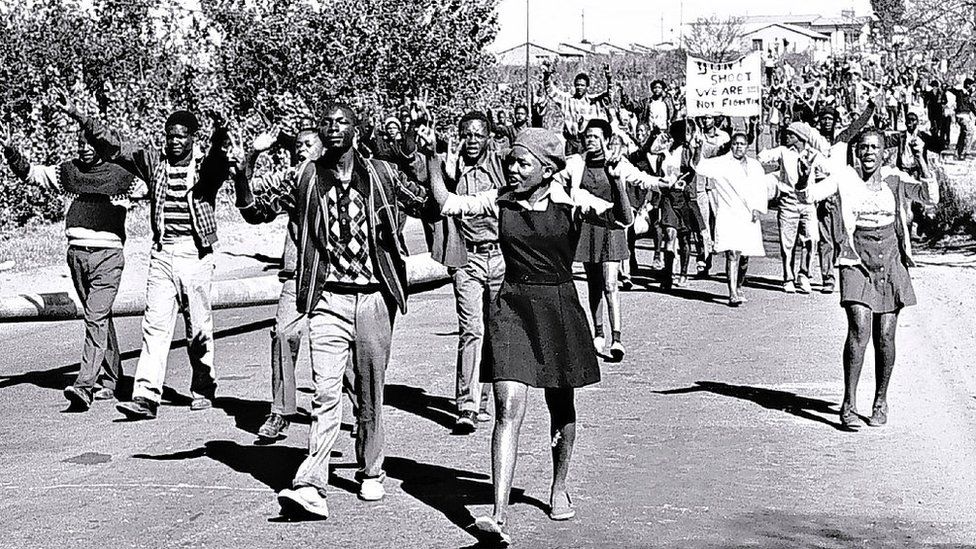Perhaps, lost in her own troubles, Nigeria has not been able to catch on with the death of Jonas Gwangwa, South African jazz musician and anti-apartheid fighter. But the BBC did not miss it, giving him an elaborate reportage. Generally regarded as great with the trombone and a mesmerizing voice, he passed on January 23rd, 2021. But, according to the BBC, it was to cardiac arrest. He is thus a contrast to the former ZANU-PF legislator, Luke Masamvu who fell to Covid-19 yesterday in Harare, each of them a big loss to the peculiar struggle in Southern Africa.
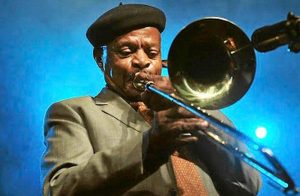
Gwangwa at it before his death at 83
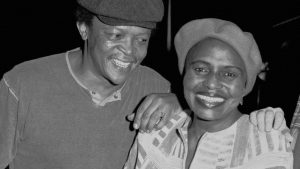
With fellow exile, Mariam Makeba, another ace musician in those days gone by
The BBC said that South African and world music has lost an icon with the death of jazz trombonist, composer and organiser. His hit single –Morwa – is the musical staple of many. The interesting thing is that he died the same day three years ago that Hugh Masekela, another musical giant and a friend of Nigeria’s Fela Anikulapo Kuti, died.
Gwangwa was basically the leader of the cultural arm of the anti-Apartheid struggle, leading the Amandla Cultural Ensemble at the instance of the president of the ANC at the time, Oliver Tambo. For that, he got his house bombed by the Apartheid regime but he was somewhere else and missed death.
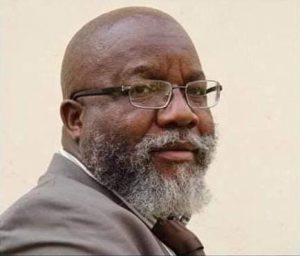
Luke Masamvu, the 62 year old ZANU-PF legislator who died from Covid-19 in Zimbabwe yesterday
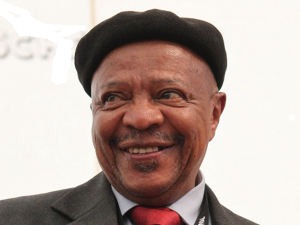
Another face of the late Gwangwa, the jazz maestro, converting the talent to anti-Apartheid struggle
Subsequently awarded South Africa’s Order of Ikhamanga in Gold which is that country’s highest honour, he was cited as having “enthralled the world with his artistry as a composer and all-round creative genius”, travelling all over the world as an exile, collecting accolades along. This was in 2010. And, his burial yesterday was a state burial, including live coverage by the South African State broadcaster and Gwangwa fetching more accolade from President Cyril Ramaphosa who is quoted by the BBC as saying the departed “ascends to our great orchestra of musical ancestors, whose creative genius and dedication to the freedom of all South Africans inspired millions in our country – and mobilised the international community against the apartheid system”.
If we follow the BBC, then Gwangwa’s moment was here: He rose to worldwide prominence in 1965 performing at a Sound of Africa concert at New York’s Carnegie Hall with the likes of Makeba, Masekela, and Letta Mbulu. It was the start of an international career that he used in service of the constantly growing struggle against white-minority rule. In 1987, alongside English composer George Fenton, Gwangwa composed the score for the film Cry Freedom, earning two Oscar nominations for best original score and song”. Beautiful prose there!
But it was the elusive former president, Thabo Mbeki, who privileged the revolutionary potential of arts and culture in Gwangwa’s artistry by saying: “Bra JG, as he was affectionately known, understood the potent combination of culture and the arts as an effective instrument for national liberation from the beginning of his career. “Together with others of his generation, Gwangwa harnessed the enthralling capacity of music not just to entertain, but also to hold up the mirror to society and bare the evil soul of the Apartheid regime to the world”.
The potency of his intervention might lie beyond the artistic as he brought together all other major musicians – Masekela, Abdullah Ibrahim and Miriam Makeba who collectively went on exile where they disrobed Apartheid the more, returning home only after Independence was won. Hence, the aptness of the BBC’s headline for him: Jonas Gwangwa: The South African jazz icon who stood up to apartheid”. Anti – Apartheid icon of the first order!

